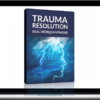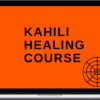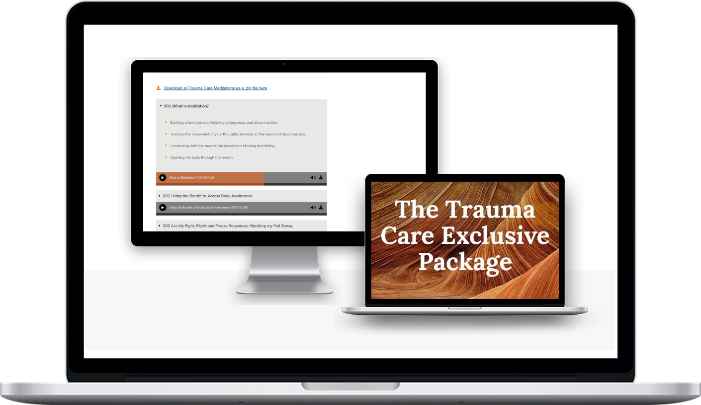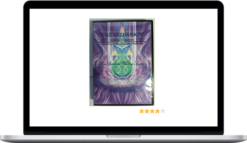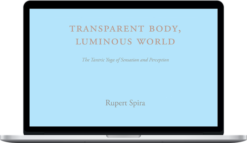Roland Bal – The Trauma Care Meditations
$128.00 $40.00
»Instant Delivery
Description
Roland Bal – The Trauma Care Meditations
Why Dealing with Complex Trauma or PTSD Isn’t Easy
- Learn how to apply meditation safely—to process Post-Traumatic Stress—without getting further overwhelmed
- Dealing with Complex Trauma or PTSD isn’t easy.
- Most often, you aren’t just dealing with one symptom only, but with various symptoms that flow from one into the other, seemingly endlessly.
- You will have days of being in a shutdown response when you feel depressed, numb, and frozen.
- On other days, you might be highly activated, anxious, upset, angry or sad, and your thoughts will be all over the place.
Furthermore, you will likely pendulate back and forth between activation and shutdown, deal with some form of addiction to try to manage your stress, and fall into excessive thoughts of guilt, blame, shame, self-reproach or self-defeat. This is the reality when dealing with Complex Trauma, and this is also why this condition is so often misdiagnosed.
Unfortunately, it just isn’t very well understood by the regular healthcare system, or even by professionals who work with mental health issues. Over the years, I have developed a model that outlines the various layers of dissociation that are part and parcel of any trauma.
These layers of disconnection or dissociation are put in place to enable you to survive. Simply put, when you are overwhelmed, you dissociate from embodiment into various layered emotions, thought patterns, addictions, and finally shutdown.
Description Of The Trauma Care Meditations
The Trauma Care Exclusive Package is the summary of twenty years of experience in the field of trauma and healing.
Consisting of The Trauma Essentials and The Trauma Care Meditations, I have distilled the complexities of trauma into a practical approach which will both help you to understand your symptoms by addressing the cognitive part, and to work through your emotional residue by reconnecting with the body through somatic exercises.
You need to address both the cognitive and the somatic parts (a top-down and bottom-up approach), or else the work you do on yourself won’t be effective. The somatic part of the work is where you reconnect with the emotions held in the body, which enables you to process what is held in the body.
The cognitive part helps you to understand the various layers of your symptoms and emotional responses by giving you an overview or road map, and also helps you to push the brakes when you go too fast in reconnecting with the body. You really need both to be successful in making progress, and this where most approaches in working through trauma are still failing.
About The Facilitator,
In the field since 2002, Roland Bal has helped hundreds of people, through individual sessions, make significant change in their personal well being. Additionally, he has reached many thousands more through his insightful, accurate, and descriptive writings of the harrowing condition of Complex Trauma and PTSD, and has pointed the way towards what can be done about it in order to heal.
His unique approach focuses on containing, regulating and processing, dissociation, the fight-flight-freeze-please responses, and re-learning boundaries and vulnerability.
I’ll be honored to work with you and help you make real progress towards recovery!
The Trauma Essential Series
In these six Trauma Essential eBooks, I lay out all you need to know about the processes that are involved when dealing with Complex Trauma.
I go deeply into dissociation, the multitude of symptoms, the various expressions of excessive thoughts, addiction, and the fight, flight, please-appease, and freeze response. There is even an eBook that is composed of many common questions—answered by me—from people who are dealing with Complex Trauma.
These eBooks will give you the cognitive framework you need to start working through your trauma, and will prepare you to start working through your emotional residue. Once you have that in place, you can start with the somatic part; The Trauma Care Meditations are specifically created for that.
What you’ll learn in The Trauma Care Meditations
What Is Covered In The Trauma Essential Series:
- Explore why you fail to overcome trauma, the need for control, the rupture of boundaries and vulnerability, what trauma does to your nervous system and emotions, and how trauma restructures your identity;
- Learn more about the manifold symptoms of Complex Trauma and PTSD by going deeper into how trauma sets off and contributes to chronic pains, exhaustion, bipolar disorder, depression, and addiction.
- What you need to know about reenactment, attachment patterning, the habit of illness, suppressed anger, love, sex and vulnerability, and the long-term ramifications of childhood trauma.
- Read about the processes of dissociation from a physical, emotional and spiritual perspective and how these relate to different personality types.
- Learn about how to bring Post-Traumatic Stress to resolution by healing anxiety, fear, desire, overcoming, perspectives of time, resilience and ultimately growth.
- Six conversation about Trauma and Dissociation between Dr. Art O.Malley and Roland Bal.
The Trauma Care Audio Guided Meditations
These are twelve, audio-guided meditations, with somatic exercises, that help you to gradually reconnect with the body.
They begin with you in the state of being numb, depressed and/or dissociated, and they take you through connecting with the head, the busyness, and tension, into the thorax, the heart, lungs, solar plexus and diaphragm, the adrenals and kidneys, and pelvic and lower body.
As you carefully reconnect with these parts of the body, I help you to feel the emotions that relate to the different places of your body, and draw on my many years of working with the body from my Osteopathic practices, as well as the insight I have gained over these last twenty years of working directly with people who have experienced all levels of trauma.
These guided meditations put the emphasis on working on your containment and building resilience, without getting overwhelmed, so that you can safely process your emotional residue.
- If you want to address you excess of anxiety, anger, or sadness and have a better ability to contain these emotions;
- If you want to balance out your fight, flight, please-appease responses so they work for you rather than against you;
- These Trauma Care Resources might be what you have been looking for.
What Is Covered In The Trauma Care Meditations:
There is a deliberate sequence to these meditations: They start from the head and from there—slowly on—bring you back into the body by:
- Addressing disconnection and dissociation, the head and the busyness of thought;
- Working with the fight, flight and freeze activation, and illustrating how they relate to tensions in the neck, back of the head, and the adrenals and kidneys;
- Slowly moving further into the body by going into the heart and the chest area, allowing the feeling, weight, heaviness, and sadness to be felt and brought into awareness, to help you process emotional residue;
- Helping you work through anxiety, self-image, fatigue, depression and boundaries related to the liver, diaphragm, solar plexus, kidneys and the lower-back area; and
- Inviting you to safely engage with silence, while managing healthy boundaries and allowing vulnerability.
What’s Inside the Trauma Care Audio Guided Meditations
Have a look into what you are gaining from each meditation and which specific topics are being covered.
Click on each heading below to see what’s inside.
- Introduction
- What is Meditation? (19:34)
- Using the Breath to Access Body Awareness. (23:32)
- Are My Fight, Flight and Freeze Responses Hijacking my Felt Sense. (16:13)
- Early Life Dysfunctional Wiring and Healthy Nervous System Functioning. (25:17)
- Meeting Fatigue, Exhaustion and Tiredness Constructively. (19:18)
- Beyond Fatigue and Anxiety; Allowing Continued Awareness of Space. (18:29)
- Coping with Anxiety and Control and Moving back into Relaxation. (21:45)
- Contained Anger as Healthy Boundaries. (22:56)
- The Movement of Desire out of Suffering. (13:57)
More courses from the same author: Roland Bal
Delivery Policy
When will I receive my course?
You will receive a link to download your course immediately or within 1 to 21 days. It depends on the product you buy, so please read the short description of the product carefully before making a purchase.
How is my course delivered?
We share courses through Google Drive, so once your order is complete, you'll receive an invitation to view the course in your email.
To avoid any delay in delivery, please provide a Google mail and enter your email address correctly in the Checkout Page.
In case you submit a wrong email address, please contact us to resend the course to the correct email.
How do I check status of my order?
Please log in to HealingCourse account then go to Order Page. You will find all your orders includes number, date, status and total price.
If the status is Processing: Your course is being uploaded. Please be patient and wait for us to complete your order. If your order has multiple courses and one of them has not been updated with the download link, the status of the order is also Processing.
If the status is Completed: Your course is ready for immediate download. Click "VIEW" to view details and download the course.
Where can I find my course?
Once your order is complete, a link to download the course will automatically be sent to your email.
You can also get the download link by logging into your HealingCourse account then going to Downloads Page.
Related products
Total sold: 11
Total sold: 3
Total sold: 1
